- Place
- Warsaw
- Adress
- Hotel Novotel Warszawa Centrum, Marszałkowska 94/98
- Beginning
- 2017-03-09 / 9.30 CET
- End
- 2017-03-09 / 14.00 CET
Although Poland’s population could be described today as rather young because of a rapid acceleration in population ageing, in about 30 years half of the population will be over the age of 50. According to the latest analyses, in 2050 the total size of the population in Poland will decrease by 10% in comparison to 2015, and the number of people aged 15-64 – by 28%. In 2050, there will be one individual aged over 65 in Poland for every two individuals aged 15-64. Population ageing in Poland will have negative impact on employment and consequently on national income and social welfare. On March 9th, the European Commission Representation in Poland, cooperating with our Institute, organised a conference in Warsaw about the consequences of population ageing for the labour market and public finance in Poland. The latest analyses were collected in the publication “Population ageing, labour market and public finance in Poland” created for the conference. Selected results from the publication were presented by: Agnieszka Chłoń-Domińczak (Warsaw School of Economics – SGH), Piotr Lewandowski (Institute for Structural Research – IBS) and Joanna Tyrowicz (University of Warsaw – UW, National Bank of Poland – NBP). The context for the scientific analyses was provided by the “Country Report – Poland 2017” prepared by the European Commission within the framework of the European Semester. The conference was opened by Marzenna Guz-Vetter – Deputy Head of the European Commission Representation in Poland and Piotr Lewandowski – President of the Institute for Structural Research (IBS). Afterwards, Wallis Goelen from the European Commission’s Directorate-General for Employment, Social Affairs and Inclusion (DG EMPL) and Wojciech Paczyński from the European Commission’s Directorate-General for Economic and Financial Affairs (DG ECFIN) presented findings about population ageing from the “Country Report – Poland 2017”.

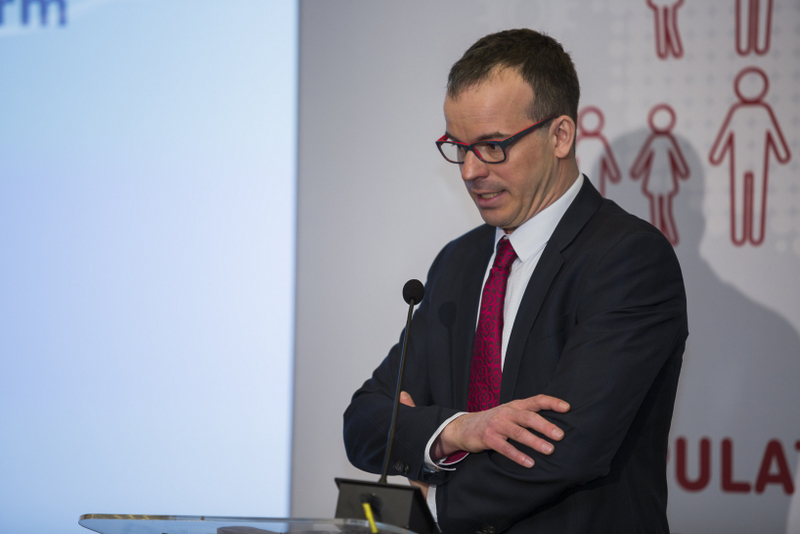
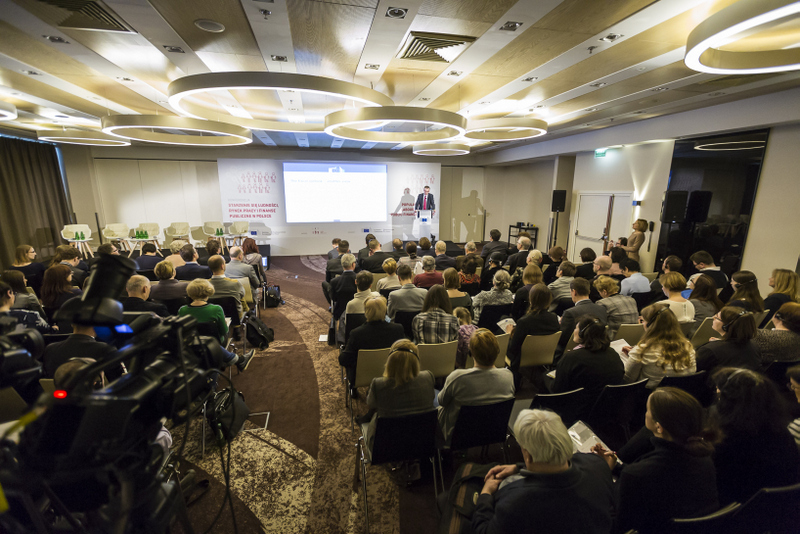


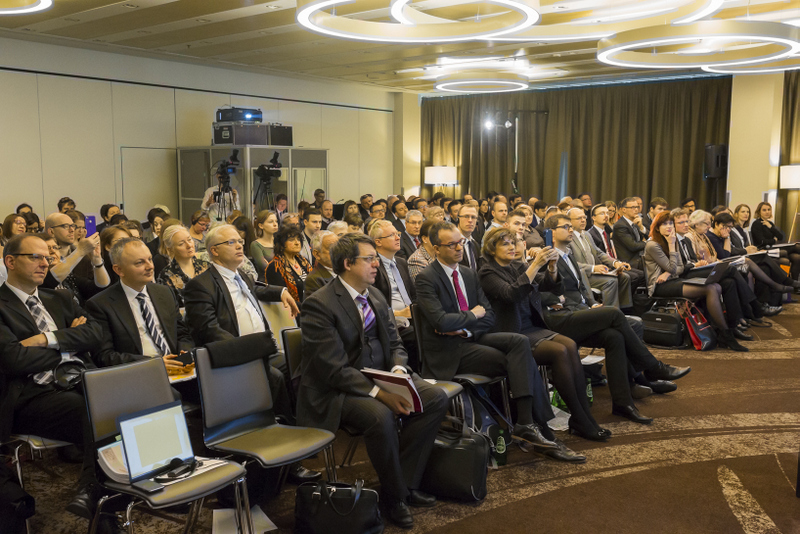
In general, the “Country Report” presents the actual economic and social situation of the country. The document describes governmental actions for the implementation of the “Europe 2020” Strategy and the European Council recommendations for EU Countries. The recommendations are published annually during the European Semester – the EU procedure of economy management which provides a framework for the coordination of economic policies across the EU.
Occupational mobility
Wallis Goelen provided a reminder about the 2016 recommendations for Poland concerning the sustainability and adequacy of the pension system. Population ageing makes it necessary to implement changes on the labour market in Poland. Mrs. Goelen said that Poland still has significant potential to increase employment. We should promote employment among older people and prevent age discrimination on the labour market. According to W. Goelen, it is important to introduce a good system for forecasting employers’ expectations including human capital. Referring to the difficult situation of women on the labour market in Poland, she spoke in favour of supporting fertility growth to enable women to reconcile work and family duties. Mrs. Goelen showed that this is possible using her own example – she has seven children and has never stopped her career. Good childcare instruments, like the availability of crèches or a special tax system for large families (as in France), would enable women to stay on the labour market. Willis Goelen also mentioned the lack of occupational mobility among farmers. In Poland, 12% of people economically active on labour market work in agriculture. The special social insurance system for farmers (pl. KRUS) provides social assistance for low-productivity farms. The European Commission does not view the system as bad in itself, but indicates that it contributes to low occupational mobility.
In 20 years, the majority of people entitled to vote will be over the age of 55
Wojciech Paczyński highlighted that it is necessary to increase public trust in the pension system. By 2050, the reduction of the retirement age itself could worsen public finance sustainability by about 0.5% of GDP per year. Other challenges caused by population ageing in Poland will include decreasing the hidden economy to increase pension contributions, building a skills strategy and a migration strategy, encouraging higher private retirement savings. In about 20 years, the majority of people entitled to vote will be over the age of 55. The pension benefits of some sections of retired people will be below the poverty threshold, which will increase pressure to raise the level of pension benefits. The consequences for public finance sustainability will be evident.
Previous labour force and employment trends are not optimistic for the future
The latest analyses concerning population ageing consequences for the labour market and public finance in Poland are collected in the publication prepared for the conference (available below). On 9th March, selected results from the publication were presented by: Agnieszka Chłoń-Domińczak (Warsaw School of Economics – SGH), Piotr Lewandowski (Institute for Structural Research – IBS) and Joanna Tyrowicz (University of Warsaw – UW, National Bank of Poland – NBP).


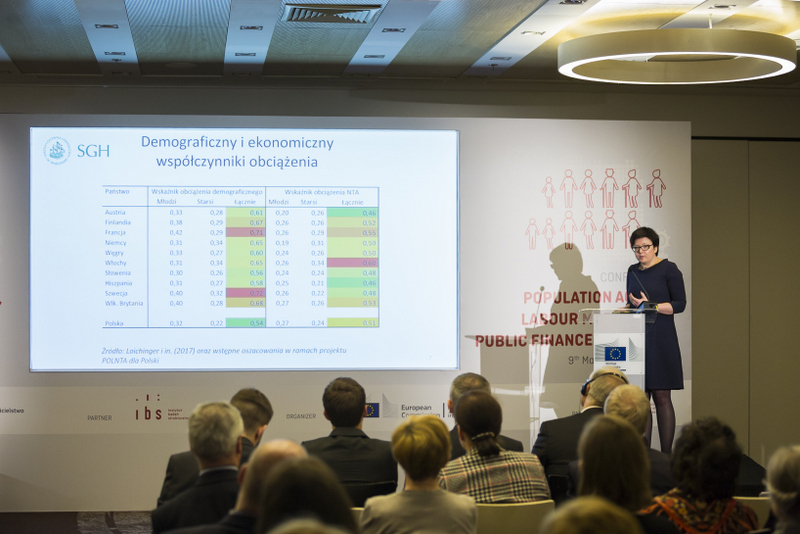
Piotr Lewandowski showed the trends in the labour force participation rates of the older population over the last 90 years. Although life expectancy in Poland has risen, our professional activity has decreased. Since the political and economic transformation in the early 1990s, the average age of exit from the labour force has declined. A gradual increase in labour force participation rates has only been observed from 2004. Today we are at the same point as in the early 1990s. Thanks to the research provided by the Institute for Structural Research (IBS), we know the probable size of the labour force in 30 years in Poland.
By 2050 there will be a 30% decrease in labour supply in Poland, amounting to 5 million people. – P. Lewandowski (IBS)
By 2050 there will be a 30% decrease in labour supply in Poland. The “disappearance” of 5 million people from the Polish labour market will be caused by changes in the age structure of the population, the previous labour force and employment trends rather than by the decreasing size of the population. What does it mean for policies? First of all, we have to realise that population ageing is a challenge for the labour market – a challenge which has to be faced by Poland. This was strongly highlighted by Piotr Lewandowski.
Population ageing is a challenge for the labour market
which Poland has to face
In 2050, half of the population of Poland will be over the age of 55. What policies should be taken to meet the challenge of population ageing in Poland? Piotr Lewandowski noticed that in the last decade, labour force participation rates among people over the age of 55 have increased. As much as half of the employment rate increase between 2006 and 2015 in Poland was a result of the increase in employment of the older population. According to P. Lewandowski, this was due to a change in public policies – the withdrawal of early retirement. Because of this, the increase in retirement age is important, but insufficient. An improvement in the labour force participation of women aged 20-44 is also crucial. P. Lewandowski claimed that even if both actions could be implemented, the negative consequences of employment decline caused by demographic factors would only be mitigated by 50%. What else could be done? P. Lewandowski also highlighted the importance of immigration growth. At the end, he added that policies aimed at increasing productivity and work satisfaction of older people should not be forgotten. These policies should include areas such as adult skills/learning, workplace ergonomics, health, flexible working hours and partial retirement.
The world in which 70% of population expect minimum pension benefits
Joanna Tyrowicz (University of Warsaw – UW, National Bank of Poland – NBP) noted that the scale of long-term consequences of the lower retirement age analysed by the Ministry of Finance in Poland and the Polish Social Security Institution has been underestimated. A large part of the economist’s presentation focused on the probable significant poverty growth among pensioners in the future in Poland. According to the analyses presented by J. Tyrowicz, from 2040 half of all pensioners will only receive the minimum pension.
Approx. 70% of people born at the end of the 80s and the beginning of the 90s can expect only the lowest pension – J. Tyrowicz (UW, NBP)
The lowest pension will be given to approximately 70% of people born at the end of the 80s and the beginning of the 90s. Furthermore, the lower retirement age will escalate income inequality (so far relatively small in Central and Eastern Europe). Deepening income inequalities in Poland will not be neutral from an economic perspective.
The defined contribution system is balanced, except for the minimum pension benefit
How we will pay for the increasing costs of the pension system in Poland? Joanna Tyrowicz highlighted that the defined contribution system is balanced, apart from the minimum pension benefit. The value of the contributions by people retiring under the new statutory retirement age (60 years for women and 65 years for men) will not provide a minimum pension. Consequently, there will be a gap in the Polish Social Security Institution (pl. ZUS) which will have to be financed from other sources. Joanna Tyrowicz noted that one possibility is to lower public expenditure allocated to other areas by approx. 1.20% of current GDP, i.e. approximately 6% of total current government spending. The most probable course of action seems to be to raise consumption taxes, e.g. VAT. To cover the minimum pension benefits after lowering the retirement age would require a raise in the VAT rate by 2 percentage points – up to 29%. – A -2% adjustment in VAT is more than any country implemented due to the global financial crisis – said Joanna Tyrowicz, and added – The policy of lowering the retirement age will have to be reversed sooner or later. It is hard to believe that we can allow the economy to function like this in the future.
57 – the age at which we do not finance our consumption
The future landscape of Poland in the context of the impact of population ageing on the labour market and public finance was finished off by the presentation of Agnieszka Chłoń-Domińczak (Warsaw School of Economics – SGH) – based on the conception of consumption and income levels during the life cycle (using the National Transfer Accounts method). According to the results, in Poland the consumption of people aged up to 26 or over 56 is higher than their income. This means that the deficit between consumption and labour income requires additional financing. What is important here is that the age of 57, at which people in Poland do not finance their consumption, is the lowest among the analysed countries. As a result, the level of economic dependency (aggregate life-cycle deficit to the total labour income) in Poland is relatively higher than expected from the demographic structure of the population. In the future both aggregated income and aggregated consumption will decrease, but income will fall faster, thereby deepening the deficit. According to Agnieszka Chłoń-Domińczak, in this context it is important to extend the length of work in the life cycle, accelerate the entry of young people into the labour market and increase productivity through the development of human capital. – An important challenge – said Agnieszka Chłoń-Domińczak – is the introduction of policies that will allow for the growth of aggregated labour income. Thanks to this, we can finance this level of consumption, which may be lowered but is still at a socially-acceptable level.
Population ageing and challenges for labour market and public finance
– panel discussions
The important parts of the conference comprised two panel discussions, which rounded off the information from the “Country Report – Poland 2017”, as well as presentations.
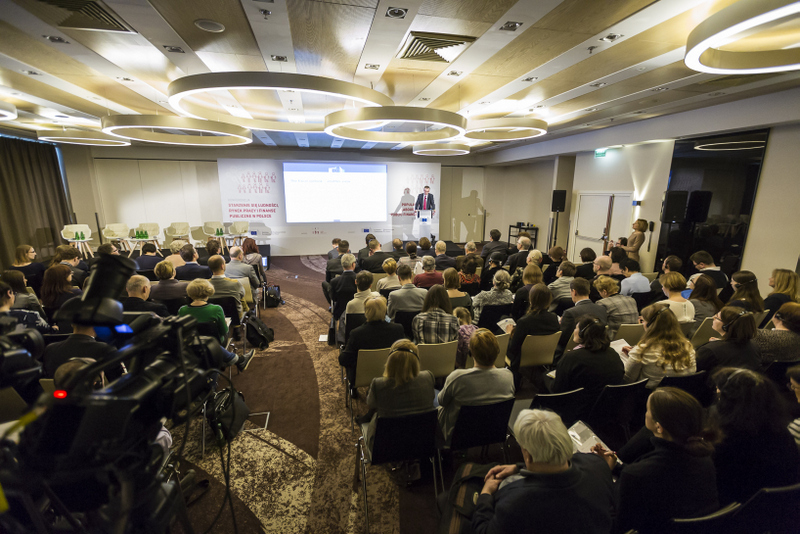


Supporting the employment of older people
The important issues raised in the first panel discussion chaired by Iga Magda from the Institute for Structural Research (IBS) were strategies to encourage older people to stay on the labour market. Elżbieta Strojna from the Ministry of Family, Labour and Social Policy in Poland (MRPiPS) pointed out a few policy instruments which should encourage people to extend their professional activities for longer despite the lower retirement age. The first is intended for older unemployed people who, as is commonly known, face difficulties returning to the labour market (about 1/3 of people registered at employment agencies are over the age of 50). The Ministry has stated the policy incentives for employers to lower employment costs: exemptions from contributions to the Labour Fund (pl. Fundusz Pracy – FP) and the Guaranteed Employee Benefits Fund (pl. Fundusz Gwarantowanych Świadczeń Pracowniczych – FGŚP). Another instrument mentioned by Elżbieta Strojna is the National Training Fund (pl. Krajowy Fundusz Szkoleniowy – KFS), which is especially addressed to older people. The KFS supports the supplementation of competencies by people already in work. Next, Wallis Goelen (DG EMPL) discussed the actions supporting the employment of older people provided by the European Social Fund (ESF). The Fund has introduced many innovations including encouraging public employment services to contact people economically inactive and support the entrepreneurship of older people. Other actions are aimed at the prevention of certain diseases to support ageing and maintaining good health. This has an indirect but significant impact on the employment of older people. The problem of ageing and maintaining good health was also highlighted by Bogdan Grzybowski from the All-Poland Alliance of Trade Unions (OPZZ). He pointed out that the lower retirement age was introduced arbitrary. B. Grzybowski emphasized that it is very important for trade unions in Poland to protect the employment of people approaching retirement age. He also highlighted the involvement of trade unions in the promotion of the age management strategy, the implementation of the National Qualifications Framework and the process of creating the National Training Fund.
The challenges for trade unions and employers
Talking about the role of trade unions and employers at corporate level, Irena E. Kotowska from the Warsaw School of Economics (SGH) noted that unions have much more to do in the context of changes in the labour market than the protection of jobs. Employers, on the other hand, are responsible for the implementation (or not) of policy instruments. The challenge is large because it requires a flexible approach that considers the employer’s age, family commitments taking into account the life cycle, care for grandchildren and care for older parents. – My expectations – said I. E. Kotowska – about the role of trade unions have not materialized. I hope that they will. It’s not just about protecting jobs. The point is, how can existing jobs be shared between workers? With flexible forms of employment […], the mediation role of trade unions is to adjust jobs to very diverse labour sources.
Family policy and labour market policy – together or separately?
The largest part of Irena E. Kotowska’s speech was devoted to the situation of women on the labour market. She looked at the breaks in works caused by childcare or care for elderly people, the effect the length and frequency of those breaks on the gender pay gap, the level of pension benefits in the future and women’s opportunities for promotion.
The increase of participation by women in the labour market is conditioned by the extent to which solutions facilitating the reconciliation of work and family duties – are also directed to and used by men. – I. E. Kotowska (SGH)
That is why, according to Irena E. Kotowska, the flexibility of work organisation and activities supporting the linking of family and professional activities is crucial. The availability of education and care services (extending the coverage of crèches and kindergartens, additional school facilities) is more important than financial support. As per I. E. Kotowska, the most important factor which could improve the situation of women on the labour market is addressing and using instruments enabling work and family duties to be reconciled by men. “We are discussing” summarised Professor Kotowska “an increase in activity, the participation of women in the labour market. But their participation is conditioned by the extent to which solutions facilitating the reconciliation of two activities – family and work – are directed and used not only by women but also by men.”
Today 50s is old 30s
Paweł Wideł from the Polish Automotive Employers Association noticed that the definition of “older employees” should be changed. – I was terrified when I heard today that an older worker is someone over the age of 45 – he said. According to P. Wideł, “an older employee” is primarily “an experienced employee”. In that context people aged 50 in the past could now be compared to those aged 30. Employers, especially at companies which have workplaces that are possibly harmful to health, should create complex care systems for workers. Taking into account that, from the age of 40, there is a decline in work-related disability caused by biological changes, older workers should have the possibility to work in more ergonomic workplaces. An example of such activities is the so-called physiotherapeutic review of the workplace, which aims to reduce the health risks associated with work.
Pension system and challenges for public finance – 2nd discussion panel
In the first discussion panel, experts focused on the consequences of population ageing on the labour market. In the last panel, chaired by Paweł Sołtys a journalist from Puls Biznesu, experts mainly discussed the effects of ageing on public finance.



Firstly, they discussed the scale of the burden on public finance mentioned by Joanna Stachura from the Expenditure Policy Department of the Ministry of Finance. The situation is not as bad as it would have been if we still had the defined benefit pension system (fortunately we have the defined contribution system in Poland). J. Stachura described the construction of the budgetary process and the importance of fiscal rules including the stabilizing expenditure rule. She pointed out that pension expenditure is one of the government’s priorities (i.e. expenditure for which funding must be sufficient). Next, she reminded participants about the recommendations contained in the “Pension Review” (pl. “Przegląd emerytalny”), whose implementation could reduce the cost of lowering the retirement age. At the end, she mentioned the importance of actions to encourage Poles to stay on the labour market. As an example, she presented the Polish Social Security Institution program called “Retirement Advisor” (pl. “Doradca emerytalny”). The aim of the program is to deliver knowledge which enables people to make a decision about whether to retire.
Looking for consensus
According to the forecasts about the influence of a lower retirement age on public finance, Istvan Szekely from the European Commission’s Directorate-General for Economic and Financial Affairs noted that assuming a more optimistic forecast could be a mistake. The panellist said that political systems in democracies like ours are very good at delaying decisions. It is connected with waiting to see if easier solutions appear in the future or the possibility of dumping the solution on another governing team. Istvan Szekely highlighted the importance of consensus. He encouraged an analysis of the needs of different interest groups and the use of models in the decision-making processes. He warned against the unjust division of population-ageing consequences for particular groups. The most vulnerable groups could express their opposition at the next election. If the retirement age reform is not receded in the future, society would have to face the very difficult problem of how to fill the fiscal gap. According to Janusz Jabłonowski from the National Bank of Poland, it will be necessary to raise VAT and excise duty to cover the payment of benefits to the large number of people applying for these benefits just after reaching retirement age. This will have negative consequences on the quality of life of pensioners. – Let’s try to imagine – proposed J. Jabłonowski – a society of the future in which pensioners receive ¼ of their last wage, of which a large portion is taken by taxes. […] It is rationally unsustainable. […] What will be the future economy be based on […] so that we can close the fiscal gap?
The retirement age is of key importance
Nicola Brandt from the Organisation for Economic Co-operation and Development highlighted that the most important factor to be considered when making a decision about retirement is the statutory retirement age. It determines human behaviour. For example if someone sees that their neighbour is retiring, he/she also wants to take advantage of this solution. She said that this reform should be reconsidered. In this context, Paweł Wojciechowski, chief economist of the Polish Social Insurance Institution, spoke particularly strongly. Asked by Paweł Sołtys if any of the instruments to reduce the scale of population-ageing challenges on public finance could be implemented in the Polish system, he simply said “no”. But then he continued that the most popular reform in OECD countries in the last 5 years was to increase the retirement age. That is the crucial method. – We can lower the retirement age and at the same time create incentives to remain in the labour market – claimed P. Wojciechowski – But they are, to some extent, contradictory goals. You can of course implement this kind of policy, but it will be very difficult and insecure. And it’s hard to imagine that it would be effective.
Text – Beata Kwiatkowska, Jan Baran,
Translation – Agata Miazga, Alan Parsons
***
Please find below the presentation and publications “Population ageing, labour market and public finance in Poland” and “Country Report – Poland 2017”. If you consider the conference materials to be worthy of dissemination, we encourage you to forward them.
***
We would like to thank all speakers, panellists, chairs and participants of the conference. We would like to invite you to the next events organised by the European Commission Representation in Poland as well as our Institute.
***




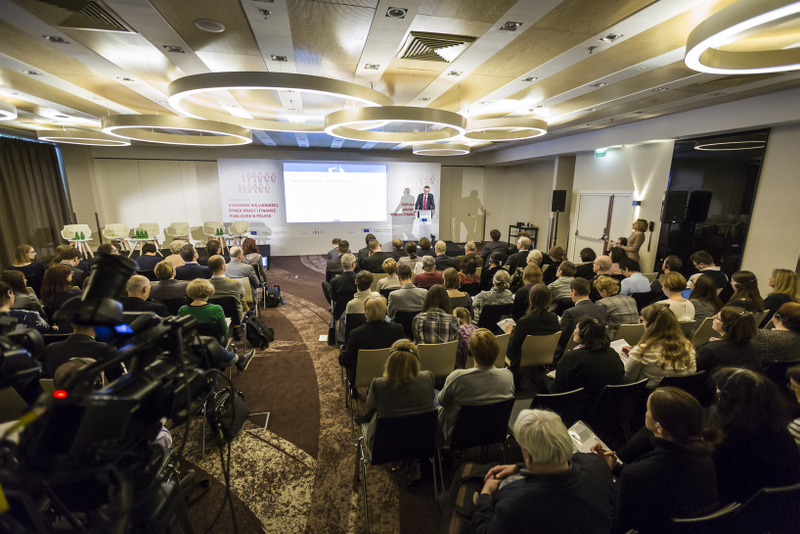


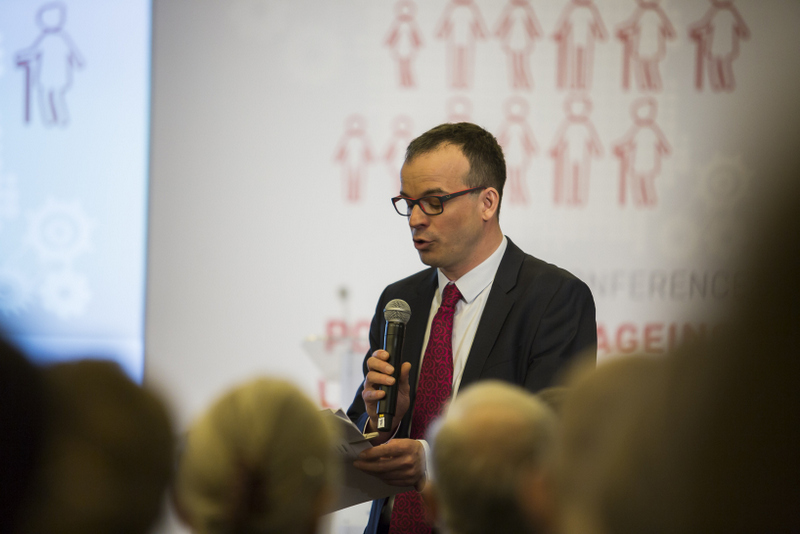






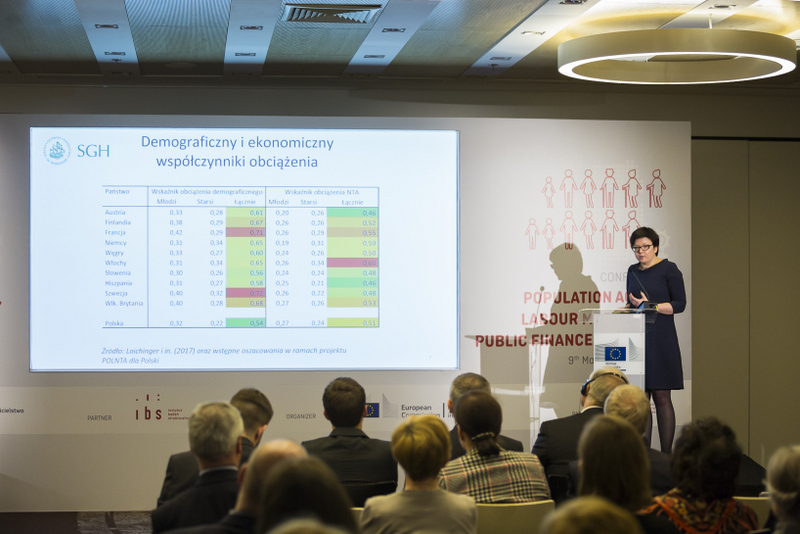






 Goelen-i-Paczynski-Findings-from-the-PL-Country-Report-1.pdf
Goelen-i-Paczynski-Findings-from-the-PL-Country-Report-1.pdf
 2017-european-semester-country-report-poland-en.pdf
2017-european-semester-country-report-poland-en.pdf
 Population-ageing-labour-market-and-public-finance-in-Poland.pdf
Population-ageing-labour-market-and-public-finance-in-Poland.pdf
 Program_Conference_PKE_IBS_9.03.pdf
Program_Conference_PKE_IBS_9.03.pdf
 Invitation_Conference_PKE_IBS_9.03.17.pdf
Invitation_Conference_PKE_IBS_9.03.17.pdf


